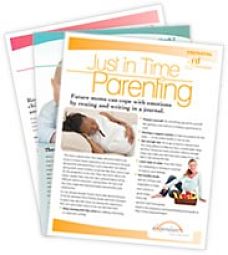Parenting and Child Care

The Parenting and Child Care information on this webpage is organized by the topics below. If you click on the topic in the list below you will be taken to the part of this webpage with that information. Check out our most current Parenting Resource Guide!
Parenting the Preschooler
Parenting the Preschooler fact sheets help to:
- Enhance parent and caregiver relationships with children,
- Increase parent and caregiver confidence, and
- Reduce parent and caregiver stress
Learn practical tips about:
- Discipline
- Feeding & Nutrition
- Health & Safety
- Nurturing & Love
- Personality Styles
- Play Ideas
- School Readiness
Below you’ll find two-page fact sheets in both English and Spanish on a variety of topics related to caring for preschool-aged children.
- Healthy Minds and Bodies
- Beverages (English) or Bebidas (Spanish)
- Breakfast (English) or El desayuno (Spanish)
- Healthy Eating (English) or La hora de comer (Spanish)
- Routines (English) or Rutinas (Spanish)
- Cooking Together (English) or Cocinen juntos (Spanish)
- Play Together (English) or Jueguen Juntos (Spanish)
- Screen Time (English) or El tiempo de pantalla (Spanish)
- Sleep (English) or El Sueno (Spanish)
- Learning and Changing
- Age 3 (English) or 3 Anos de edad (Spanish)
- Age 4 (English) or 4 Anos de edad (Spanish)
- Age 5 (English) or 5 Anos de edad (Spanish)
- Transitions and Security Blankets (English)
- Allowances (English) or Mesadas (Spanish)
- Art (English) or Arte (Spanish)
- Exploring Science (English) or Exploracion de la ciencia (Spanish)
- Reading Readiness (English) or Preparación para la lectura (Spanish)
- Math Readiness (English) or Preparación para las matemáticas (Spanish)
- Money Lessons (English) or Lecciones con el dinero (Spanish)
- Save & Spend (English) or El ahorro y los gastos (Spanish)
- Saving for Education (English) or Ahorrar para la educación (Sp[anish)
- Storytelling (English) or La narracion de cuentos (Spanish)
- Relationships
- Household Stress (English) or Estrés en la vivienda (Spanish)
- Moderation (English) or Moderacion (Spanish)
- Parenting Styles (English) or Estilos de crianza (Spanish)
- Self Control (English) or Autocontrol (Spanish)
- Focus on Do (English) or Céntrese en Haz esto (Spanish)
- Sibling Rivalry (English) or Competición entre hermanos (Spanish)
- Emotion Coaching (English)
- Appreciate the Differences (English)
- Death and Grief (English)
For more information, visit the University of Wisconsin-Extension Parenting the Preschooler state Website at: https://fyi.extension.wisc.edu/parentingthepreschooler/. Each fact sheet contains links to additional resources and references.
Research-Based Child Development Data for Parents
- Child poverty and welfare
- Parenting
- School readiness
- Education
- Health and youth development
Visit their Web site at: http://www.childtrends.org/
Just In Time Parenting Newsletter Via E-Mail
Parenting information when you need it! Finding reliable parenting information and advice on the web can be overwhelming. How do you know what you can trust — especially when you are busy and there’s just so little time?
Just in Time Parenting is a free parenting newsletter that is delivered by email and specific to a child’s age and needs. They are designed so that information that’s relevant to your family is automatically delivered to you just in time!
- Easy to use guides on how your child is developing

- Tips on raising a healthy child
- Tools for solving common parenting challenges
- Subscribe at http://jitp.info/
- Email and birth date of child is all that is needed!
Why should parents choose Just in Time Parenting?
- Available in English & Spanish
- Links to podcasts, videos, and other resources
- Commercial free — no toy or product ads
- Based on research and written by experts who are parents themselves!
All newsletters are great for grandparents, too. Pass it along!
Be an eParent®
![]() Smart phones, social media, touch pads, video games, and computers are a constant presence in the lives of most families, especially with many school & programs providing virtual options during the COVID-19 pandemic.
Smart phones, social media, touch pads, video games, and computers are a constant presence in the lives of most families, especially with many school & programs providing virtual options during the COVID-19 pandemic.
eParenting® provides parents and other caring adults ways to connect with children and adolescents using digital media.
Explore eParenting®, education based, positive parenting tools developed by University of Wisconsin — Extension family living educators and specialists.
Little Ones (0-5 years)
https://parenting.extension.wisc.edu/eparenting-little-ones/
High-Tech Kids (9-14 years)
https://fyi.extension.wisc.edu/eparenting/
Co-Parenting
https://fyi.extension.wisc.edu/eparenting/category/coparenting/
Home Alone
 Prepare Children to Stay Home Alone – FREE Video Program! A video training program from UW-Extension can help prepare children to stay home unsupervised. The program teaches families how to develop a plan for emergencies.
Prepare Children to Stay Home Alone – FREE Video Program! A video training program from UW-Extension can help prepare children to stay home unsupervised. The program teaches families how to develop a plan for emergencies.
The video program provides tips for structuring the children’s time alone so they have plenty of activities to keep them busy and out of trouble.
There is no magic age at which children develop the maturity needed to stay alone. But here are three signs that your child may be ready:
- Your child indicates desire and willingness to stay alone.
- Your child accepts responsibility and makes decisions. For example, your child will follow your written directions for chores that need to be done while you are away.
- Your child shows awareness of what others need.
For many children, these abilities can appear between 9 and 12 years of age. Other children need more time.
Access the Home Alone video training online at https://fyi.extension.wisc.edu/homealone/ or contact Carol Bralich at 262-335-4479.
PARENTHETICAL: Online Community for Parents of Teens
No matter how famous, how smart, or how prepared you are, parenting an adolescent can be a daunting task. Parenthetical is designed to help and support you as you prepare to meet that challenge. It’s a place where you can learn from experienced parenting educators and adolescent development experts from University of Wisconsin-Madison Division of Extension.
Parenthetical can help you . . .
- Understand your child better
- Improve your relationship with your child,
- Decrease your stress and
- See the similar joys and challenges others experience as they parent preteens and teens.
Check out Parenthetical online at https://parenthetical.wisc.edu/
For Child Care Professionals
Articles and Activities from Penn State Extension’s Better Kid Care Program: http://www.betterkidcare.psu.edu
Questions or Concerns? Contact Human Development & Relationships Staff





